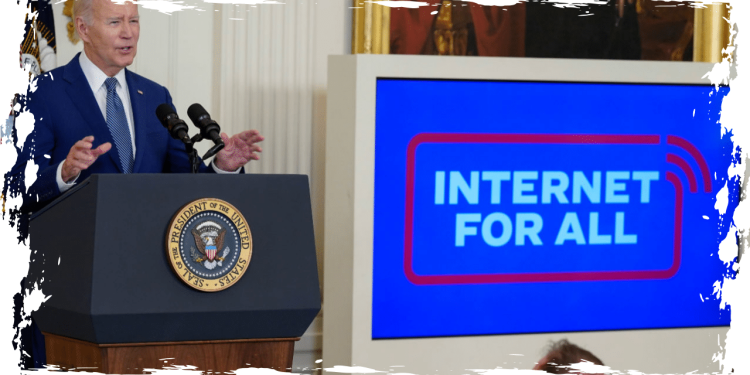The Biden administration announced on Friday that over a dozen internet service providers have committed to extending discounted internet plans for low-income households until the end of 2024. This move comes as the federal program supporting these subsidies is set to conclude.
AT&T, Comcast, Cox, Spectrum, Verizon, and nine other providers will maintain their commitment to offer affordable plans of $30 or less. These plans will be available to both current participants of the Affordable Connectivity Program and other eligible households.
Several other providers are also participating, including Allo Fiber, altafiber (and Hawaiian Telcom), Astound Broadband, IdeaTek, Mediacom, MLGC, Optimum, Starry, and Vermont Telephone Company.
The Affordable Connectivity Program, which helped over 23 million households by offering broadband discounts, is set to stop providing benefits from Saturday onwards due to insufficient funding.
The Biden administration has once again urged Congress to pass an additional $6 billion in funding to extend the program, despite the fact that some households will continue to benefit from their existing low-cost internet plans under the newly announced agreements with providers.
FCC Chair Jessica Rosenworcel expressed her regret in having to end the most successful broadband affordability program in the history of our nation. In a letter to Rep. Dave Joyce (R-Ohio), who chairs the House Appropriations Subcommittee on Financial Services and General Government, she stated, “It is regrettable that the Federal Communications Commission must bring to a close the most successful broadband affordability program in our Nation’s history.”
According to Rosenworcel, the Affordable Connectivity Program (ACP) remains highly necessary due to the significant demand for its reliable and consistent benefits. It plays a crucial role in ensuring that low-income households across rural, suburban, and urban areas in America have access to the internet and can stay connected.










